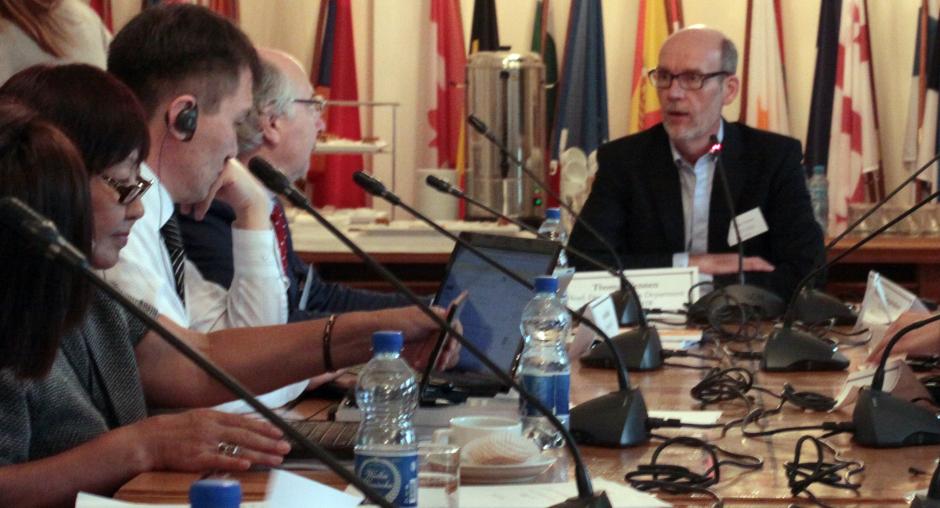ODIHR, Venice Commission roundtable discussion in Warsaw discusses recommendations to facilitate establishment and functioning of associations

Key challenges in creating an enabling legislative environment for associations were the focus of a roundtable discussion organized in Warsaw by the OSCE Office for Democratic Institutions and Human Rights (ODIHR) and the European Commission for Democracy through Law of the Council of Europe (Venice Commission) on 8 and 9 September 2014.
Some 40 experts on freedom of association issues, including representatives from civil society organizations and the international community, provided expertise and input to the draft ODIHR-Venice Commission Guidelines on Freedom of Association, to be finalized in December 2014.
“Legislation that affects the exercise of the right to freedom of association should be drafted with the purpose of enabling the operations of associations, promoting their establishment and existence, and facilitating their aims and activities,” said Thomas Vennen, Head of the ODIHR Democratization Department. “Limitations on associations should only be imposed where necessary and permissible under international human rights instruments.”
During the discussions, participants formulated a number of concrete recommendations on regulating in law the formation, objectives and activities of associations, and stressed that provisions on liability and sanctions for violations of applicable legislation should be clearly formulated and narrowly tailored.
“Freedom of association is a fundamental right in any democratic society, and the drafting of new Guidelines on Freedom of Association by ODIHR and the Venice Commission underlines the importance of guaranteeing this right in times of economic crisis and political turmoil,” said Herdis Thorgeirsdottir, Vice-President of the Venice Commission. “The exercise of freedom of association by workers, students and human rights defenders has always been at the heart of struggle for democracy and human rights around the world, and it remains at the heart of society once democracy has been achieved.”
The guidelines are intended to provide practitioners, including legislators and civil society organizations, with advice and expertise on international standards and good practice examples in the promotion and protection of freedom of association.
